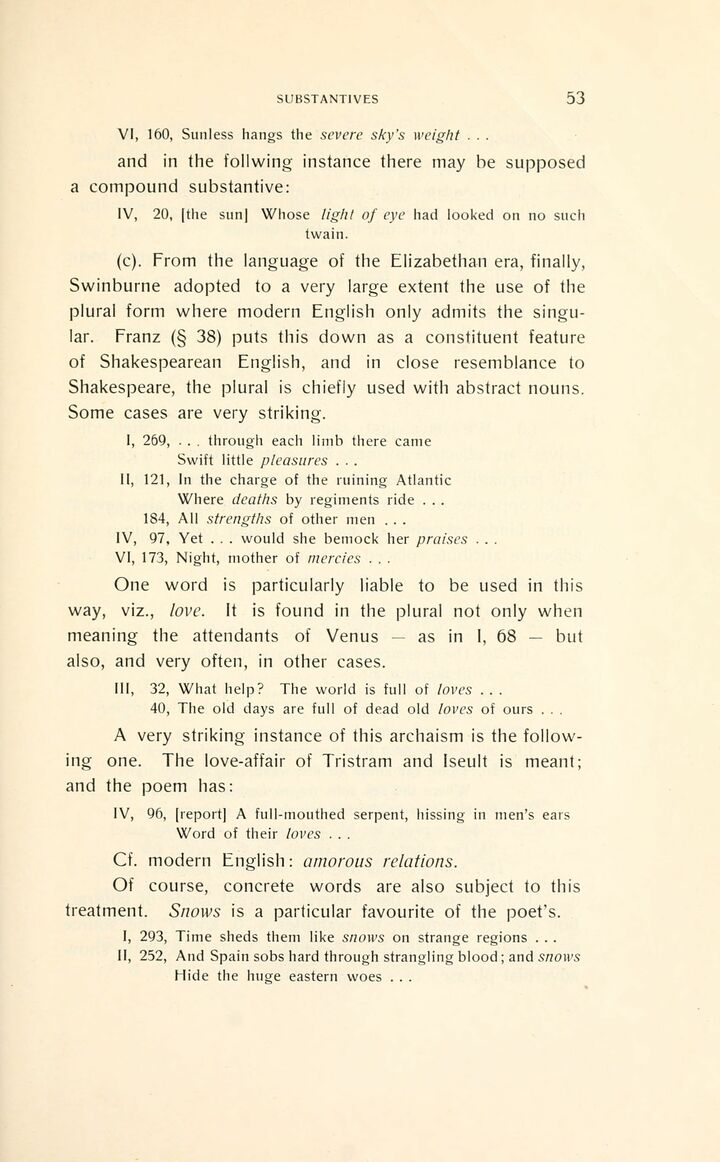
Full resolution (JPEG) - On this page / på denna sida - Sidor ...

<< prev. page << föreg. sida << >> nästa sida >> next page >>
Below is the raw OCR text
from the above scanned image.
Do you see an error? Proofread the page now!
Här nedan syns maskintolkade texten från faksimilbilden ovan.
Ser du något fel? Korrekturläs sidan nu!
This page has never been proofread. / Denna sida har aldrig korrekturlästs.
SUBSTANTIVES
53
VI, 160, Sunless hangs the severe sky’s weight . . .
and in the follwing instance there may be supposed
a compound substantive:
IV, 20, [the sun] Whose light of eye had looked on no such
twain.
(c). From the language of the Elizabethan era, finally,
Swinburne adopted to a very large extent the use of the
plural form where modern English only admits the
singular. Franz (§ 38) puts this down as a constituent feature
of Shakespearean English, and in close resemblance to
Shakespeare, the plural is chiefly used with abstract nouns.
Some cases are very striking.
I, 269, . . . through each limb there came
Swift little pleasures . . .
II, 121, In the charge of the ruining Atlantic
Where deaths by regiments ride . . .
184, All strengths of other men . . .
IV, 97, Yet . . . would she bemock her praises . . .
VI, 173, Night, mother of mercies . . .
One word is particularly liable to be used in this
way, viz., love. It is found in the plural not only when
meaning the attendants of Venus — as in I, 68 — but
also, and very often, in other cases.
III, 32, What help? The world is full of loves . . .
40, The old days are full of dead old loves of ours . . .
A very striking instance of this archaism is the
following one. The love-affair of Tristram and Iseult is meant;
and the poem has:
IV, 96, [report] A full-mouthed serpent, hissing in men’s ears
Word of their loves . . .
Cf. modern English: amorous relations.
Of course, concrete words are also subject to this
treatment. Snows is a particular favourite of the poet’s.
I, 293, Time sheds them like snows on strange regions . . .
II, 252, And Spain sobs hard through strangling blood ; and snows
Hide the huge eastern woes . . .
<< prev. page << föreg. sida << >> nästa sida >> next page >>